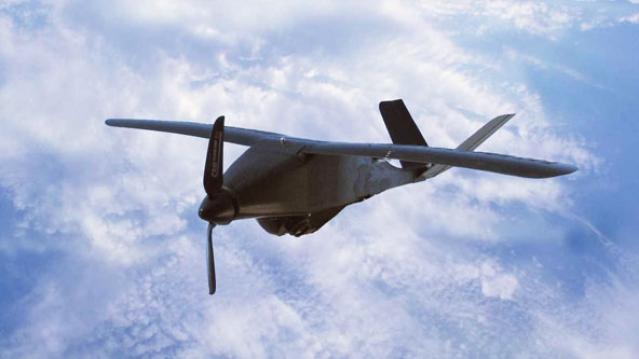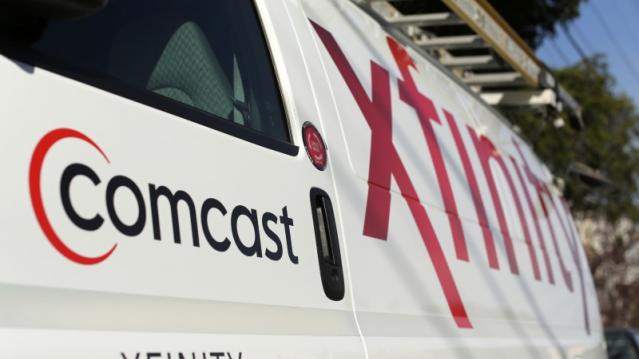Undertrained US Drone Pilots Put War Effort at Risk

The U.S. military is allowing pilots who haven’t fully completed their training to fly predator drones over Yemen and Pakistan—potentially putting innocent people on the ground at risk if something goes wrong.
An alarming new report by the Government Accountability Office found that drone pilots in the Army and Air Force have been skimping on their training sessions in order to get assigned to missions faster.
Related: Who Knew the Navy Could Launch 30 Drones in 60 Seconds?
The GAO said that because there is a shortage of drone pilots, the Air Force and Army have been routinely speeding up the process by cutting training time.
“As a result, the Army does not know the full extent to which pilots have been trained and are therefore ready to be deployed,” the report said.
The GAO reviewed Air Force records and found that only 35 percent of pilots operating drones had completed their required training.
Some pilots told the auditors that training wasn’t completed because there was a lack of funding or gaps in knowledge about the unmanned aerial systems (UAS) commonly called drones.
“Army UAS pilots stated that leadership of larger non-aviation units that oversee their UAS units do not understand UAS pilot training,” the report said.
The GAO had previously reported that there weren’t enough drone pilots compared with the number the Air Force said it needed. At New Mexico’s Holloman Air Force Base, for example, drone pilot staffing was at only 63 percent of full staffing level, the report said.
The latest findings from the GAO seem to confirm that this is still an issue.
Related: The Duck Drone That Could Change the Navy
The U.S. military says it is taking action to increase the number of instructors in order to get more pilots through the complete training process. However, the GAO said that the Army hasn’t fully addressed “the risks associated with using less experienced instructors.”
The Army waived course prerequisites for nearly 40 percent of its drone pilots who were working toward becoming instructors.
“As a result, the Army risks that its UAS pilots may not be receiving the highest caliber of training needed to prepare them to successfully perform UAS missions,” the auditors said.
Meanwhile the Air Force faces instructor shortages as well.
The report calls into question whether a lack of training could hamper drone pilots’ ability to successfully and safely complete their missions. It comes amid intense scrutiny of the government’s drone program after a botched mission in January killed two Western hostages during an attack on al Qaeda in Pakistan.
Scrutiny of the program is nothing new. Human rights activists have long called on the administration to cease using drones in its ongoing war on terror because of civilian casualties.
A 2013 report by Human Rights Watch said that between 2009 and 2013, U.S. drone strikes killed 57 civilians in six different strikes in Yemen. Last year the Yemeni government paid $1 million to families of victims of one of those strikes, which targeted a wedding and killed 11 people.
Comcast to Cut the Cord with Time Warner

Comcast is dropping its merger with Time Warner after a year of regulatory pushback, according to Bloomberg. The news wire's unnamed sources say there will be an announcement tomorrow.
In today's changing media landscape it is not really clear what the preemptive breakup of a media megacorp (formed from mere media titans) will mean for consumers, especially in the face of Verizon's push to slim down its bundled offerings, the new ala carte service from HBO and the continued expansion of Netflix's original programming. As more and more people cut the cord, the market for traditional cable TV is eroding, and more consumers opt simply for an Internet connection.
Even without that, Comcast dropping its deal probably will have no impact at all for the average cable subscriber, given the already segregated monopolies allowed individual cable companies. So, unless you own stock in either of these companies, this is pretty much just more status quo in a rapidly changing market.
Can Low Self-Control Turn You Into Edward Snowden?

Be very wary if your employer asks you to take a test and then says please put on this cap. The cap could have sensors measuring your “self-control,” which researchers at Iowa State University have connected to—cybersecurity.
Yup—this wasn’t about eating the last cookie, having sex with a stranger, or taking a hit from some unknown new drug just because your friend said it was an amazing experience. The test measures how long someone hesitates before doing something risky or wrong.
Hmm. Maybe I’ll wait a few seconds before robbing that jewelry store! If they waited, the researchers determined that the employees were considering the consequences of their actions and therefore had higher self-control than those who simply filled their duffle bag with whatever bling was in sight.
Those with higher self-control were deemed better cyber security risks than the low self-control group.
But who knows? Maybe the high group was just casing the joint and calculating how much they could carry without getting caught. Or maybe they were searching for the largest unflawed diamond in the case that could be hidden in their pocket!
So much for brainwaves.
These Students Are Making Even More Than They Expect After Graduation
College students who major in STEM fields generally know that they can make more money than their peers once they graduate, but they don’t know how much more.
Turns out, those students majoring in science, technology, engineering and math, actually have starting salaries that are higher than expected, according to a new report by the National Association of Colleges and Employers.
Engineering majors, for example, expect to earn $56,000, but actually receive 15.5 percent more than that, with starting salaries average nearly $65,000. Computer Science majors expect to make around $51,000, but receive 22 percent for an average starting salary of $62,000.
Chemistry majors have the largest gap between expectations and reality: They expect to earn an average of $39,000 but take home an average $58,000 in their first year, a 51 percent increase.
Related: The Closing of the Millennial Mind on Campus
The typical college graduate in 2014 received a starting salary of $48,000. Liberal arts and humanities majors had the lowest starting salary, with an average of just $39,000, according to NACE.
Not only do STEM majors enjoy higher salaries, but they can also expect more job security and better job prospects. All of the top 25 jobs recently compiled by U.S. News and World Report fell into either a science- or math-based discipline.
Still, not everyone has the interest or aptitude to excel in a STEM career. A third of those who begin their college career majoring in those fields end up transferring to a difference study area, according to a recent report by RTI International.
Will Obama Send a Smoke Signal About Weed?

The resignation of Michele M. Leonhart, chief of the Drug Enforcement Administration, just one day after 4/20 -- which is sort of Thanksgiving for stoners -- offers President Obama an opportunity to replace her with someone who shares his relatively benign view of marijuana.
The right appointment might also be a gift to Hillary Rodham Clinton since it would signal to younger voters that it's not just libertarian-leaning Republicans like Senator Rand Paul of Kentucky who want to decriminalize the use of pot.
Representative Early Blumenauer, an Oregon Democrat, told The New York Times that Obama should appoint someone who "understands the federal approach to marijuana isn't working."
Related: How to Stop Cyber Attacks: Let Workers Smoke Pot
The flashpoint that led to the departure of Leonhart after a 35-year career at the D.E.A. was a congressional hearing that revealed agency agents in Colombia had taken part in parties with prostitutes paid by drug cartels. But Leonhart, who has lumped marijuana in with crack, meth and heroin, found herself at odds with the President, who has called pot no more dangerous than alcohol.
“Hopefully this is a sign that the Reefer Madness era is coming to an end at the D.E.A.,” Mason Tvert, the director on communications at the Marijuana Policy Project, told Bloomberg Politics.
How to Stop Cyber Attacks: Let Workers Smoke Pot

What’s true for the government is true for business. FBI Director James Comey thinks you can’t hire top tech talent with a ban on weed. It all started in the Reagan administration, which imposed a no-hire policy for applicants who toked up within the past three years. Good luck with that.
In 2014, Comey raised the issue during a speech: “A lot of the nation’s top computer programmers and hacking gurus are also fond of marijuana. I have to hire a great workforce to compete with those cyber criminals and some of those kids want to smoke weed on the way to the interview.”
That’s not the only reason the government can’t hire competent programmers and white hat hackers. They come at a high price, there’s a shortage, and they hate red tape and bureaucratic annoyances. For some lawmakers, though, it’s easier to get lost in the weed than try to reform the federal hiring process. That’s why Gerry Connolly (D-VA) and Earl Blumenauer (D-OR) have two proposals in the House requiring info from the intelligence director on how classifying pot as Schedule 1 narcotic crimps the feds recruiting efforts.
